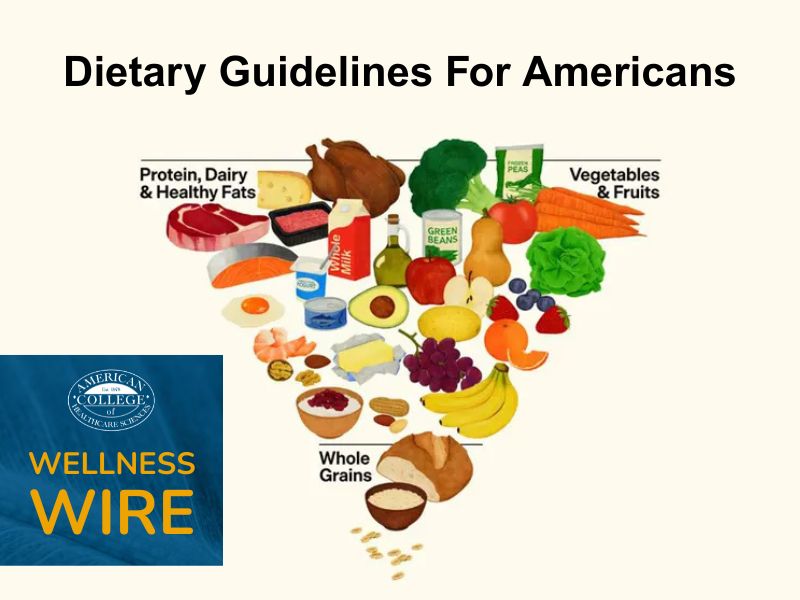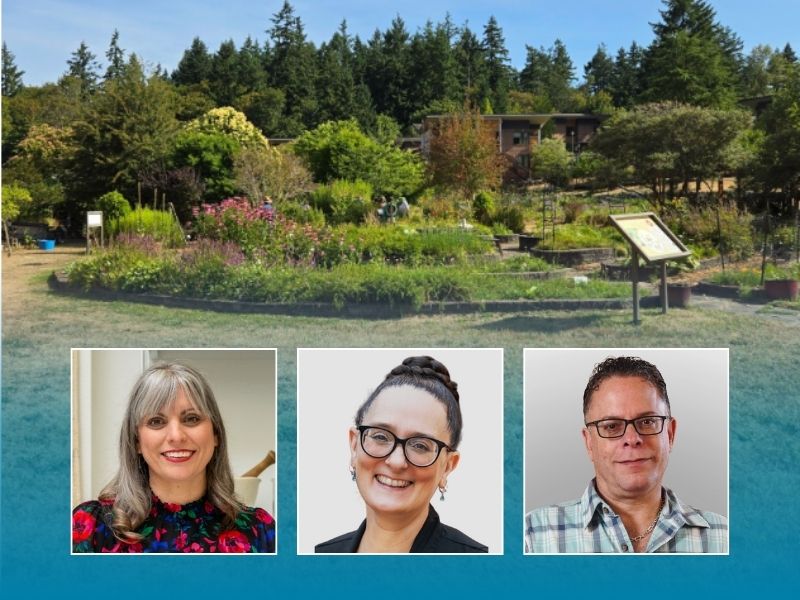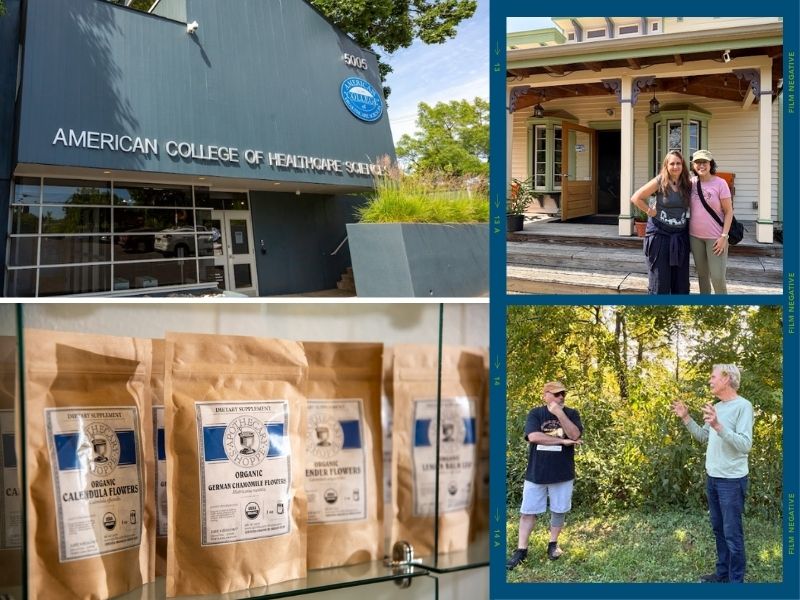On Wednesday, I had the exciting opportunity to present the ACHS Master Lecture webinar, “What’s Hot and What’s Not: 2013-2014 U.S. Trends in the Aromatherapy Essential Oil Sector.” We had a lively Q&A at the end of the lecture! Unfortunately, we ran out of time before we could answer every question posted in the chat box. You asked so many great questions that I had to make sure I addressed some more. If you attended the webinar, thank you for all the insightful questions. If you missed it, no worries! You can view the recording by clicking here.
Questions from the Webinar Q&A:
Question on Labeling from Leslie: If they are selling “All natural” with the additives, are they adding them to the label for those that at aren’t versed in aromatherapy?
A: Great question, Leslie! Thanks! If you are referring to bulk oils from suppliers there is no requirement to list additives on the label. This is why I spend time talking to growers and producers and endeavoring to share how important the quality of the raw material is to professional aromatherapists. As a trained aromatherapist, RA, or consumer, it is so important to get educated and learn how to perform organoleptic tests and read a GC/MS.
Question on the Trends Survey chart “Distribution of APAs Practice Setting” slide 30 from Tim: Who falls under the government category?
A: Tim, I wondered this myself. Short answer—I was not able to drill down on these survey questions to evaluate that data. I plan to gather data yearly and provide comparisons, so I will drill down further for the 2014 survey results!
Question about purchasing essential oils from Davina: There were some controversies with some top essential oils companies, doTerra, Young Living… What are your thoughts and advice to purchase EOs?
A: Davina, my best advice is to find a supplier you can trust. There is a lot of hype out there. Define your parameters, i.e. is it certified organic? It also depends if you want to purchase single oils or pre-blended oils, which in my opinion, limits your choice of administration methods.
Question on growers from Betty: Are there lists of U.S. growers available?
A: No, this is not generally available. Some distillers will contract with a grower. This assures a supply, but supply can be as volatile as the end product!
Question on diffusion from Davina: How effective are aromatherapeutic candles vs. diffusers? Naturally scented candles vs. aromatherapeutic candles?
A: Great question, Davina. Heat is not desirable for the therapeutic delivery of an essential oil. Having said that, diffusers do have different dispersing mechanisms. It also depends on what results you are hoping to achieve. A well-crafted essential oil blend candle is a treat. However, I would not choose that method to administer oils therapeutically.
Question about synergy from Lora: Per Tisserand, the concept of “synergy” not really proven. You mentioned research reports to confirm existence of synergy. Can you share them?
A: Lora, all of the references to the research supporting the concept of synergy can be found at the end of the PowerPoint here: http://files.achs.edu/pdf/aromatherapy-what’s-hot-and-what’s-not-dorene-petersen.pdf . A great discussion point for ongoing conversations! A lot of the research is quite new. What I forgot to mention yesterday that is very exciting is the research showing synergy between essential oils and antibiotics. It is covered in the full paper. Here are two of the studies I reviewed; Panahi, Y., Akhavan, A., Sahebkar, A., Hosseini, S.M., Taghizadeh, M., Akbari, H., et al. (2012). Investigation of the effectiveness of Syzygium aromaticum, Lavandula angustifolia and Geranium robertianum essential oils in the treatment of acute external otitis: A comparative trial with ciprofloxacin. J Microbiol Immunol Infect., pii: S1684-1182(12)00214-9.; http://www.ncbi.nlm.nih.gov/pubmed/23537749?utm_campaign=Listly&utm_medium=list&utm_source=listly
Question about buying locally from Ann: I am near the IL/WI border and would like to buy as locally as possible. Where/how to start researching sources?
A: Ann, I must confess my knowledge of U.S. geography and climates is limited. I am not sure what grows in IL and WI, but essential oils are definitely a global commodity. Locally, you may find spearmint and peppermint. Maybe an advert in a local agricultural newspaper or a local organic growers group could point you in the right direction.
Question about marketing from Betty: Do you still list businesses on the blog or is it better to put essential oils on the Internet your self?
A: Betty if you are an ACHS, graduate we list your business here: https://achs.edu/achs-alumni-practitioner-directory
Question about ACHS from Brigitte: How often do you have on-campus classes/ workshops and how can I be part of them?
A: Brigitte, we offer Study Abroad programs and on-campus classes. Subscribe to the ACHS Health and Wellness blog http://info.achs.edu/blog and like ACHS on Facebook https://www.facebook.com/ACHSedu; they are both great ways to receive updates. Hope to meet you in class or on our study abroad program! https://www.achs.edu/study-abroad
Question on essential oil use from Jennifer: What are your thoughts about oral use/ingesting oils?
A: Jennifer, I am an NZ trained naturopath. I’ve administered appropriate essential oils orally. But this does require education and training and an in-depth understanding of dosage, duration, and contraindications as well as using appropriate essential oils as a dietary supplement.
Question about EO brands from Ann-Marie: There are so many brands of EO’s available to purchase, what can I look for on packaging that would let me know it is truly pure?
A: Ann-Marie, there is not an easy answer to this. Packaging will generally not reveal what you need to know. Find a supplier you trust—someone who fits with your values—and educate yourself in organoleptic evaluation skills.
Question on microwaving oils from Leslie: I’ve seen microwave distillers for home… how do you feel about these? Wouldn’t the microwave hurt the final product in some way?
A: Leslie, this is a thoughtful question. Frankly, I don’t know. I would feel cautious, yet in a pinch, I will eat food reheated in a microwave. More comparative tests need to be done. What I would like to see is the same plant processed into an essential oil using microwave and distillation and analyses performed. I am sure there would be constituent variability.
Comment on microwaving from Brigitte: I’d never use a microwave for anything but heating up those heating pads.
A: Brigitte, using a microwave is a new technology for essential oil production. Pros and cons: I think it is too early to evaluate. Hopefully some sound research will manifest, and we can base our decision on that. Bottom line: if you don’t like it, don’t buy or use it. Consumers have the ultimate power, and I am also hesitant!
Question on terminology from Lora: When I studied at ACHS we were calling it aromatology. Are you thinking it is aromachology now?
A: Lora, I am so happy to see you could attend. Terminology changes; in the webinar, I was covering them all. I also pointed out that all of these terms imply perception of the aroma whereas essential oil therapy does not. We know that perception is not a prerequisite in order to benefit from essential oils.
Question on eucalyptus and peppermint: Can the eucalyptus and peppermint be taken internally for fungal infections?
A: James, yes, but be sure to follow the RDD and cautions and contraindication’s carefully.
Question on product quality from Laura: Your thoughts on the “Young Living” Essential Oil product quality?
A: I prefer not to comment on the quality of oils provided by any one company. I am committed to educating producers and end users alike with an overall focus on safety and sustainability. I am always less committed to any company when I see over enthusiastic and unregulated product claims and unsafe practices being recommended. Aromatherapy as a profession will only develop to its full potential when we have practitioners who question such practices and embrace transparency.
Thanks again, everyone, for such a dynamic Q&A. If you’re interested in learning more about the accredited online programs in aromatherapy from the American College of Healthcare Sciences, click this link for more information. And be sure not to miss out on future free Master Lecture webinars with ACHS faculty by signing up here to receive invites!
This article is for informational purposes only. It is not intended to treat, diagnose, cure, or prevent disease. This article has not been reviewed by the FDA. Always consult with your primary care physician or naturopathic doctor before making any significant changes to your health and wellness routine.
Did you miss the webinar? Don’t worry, just watch it here!




